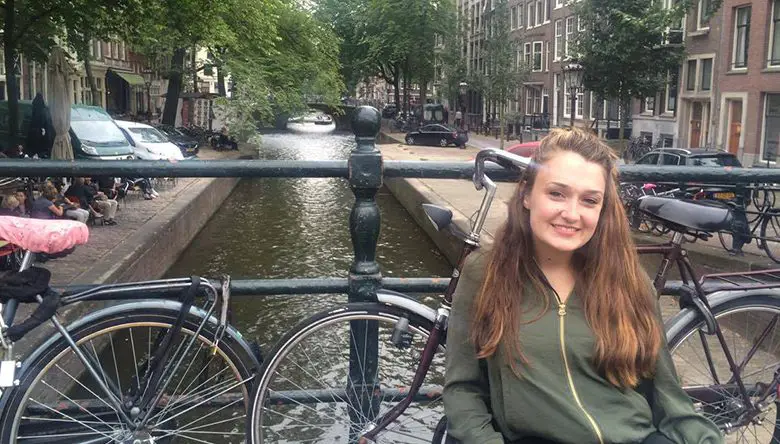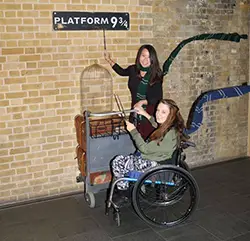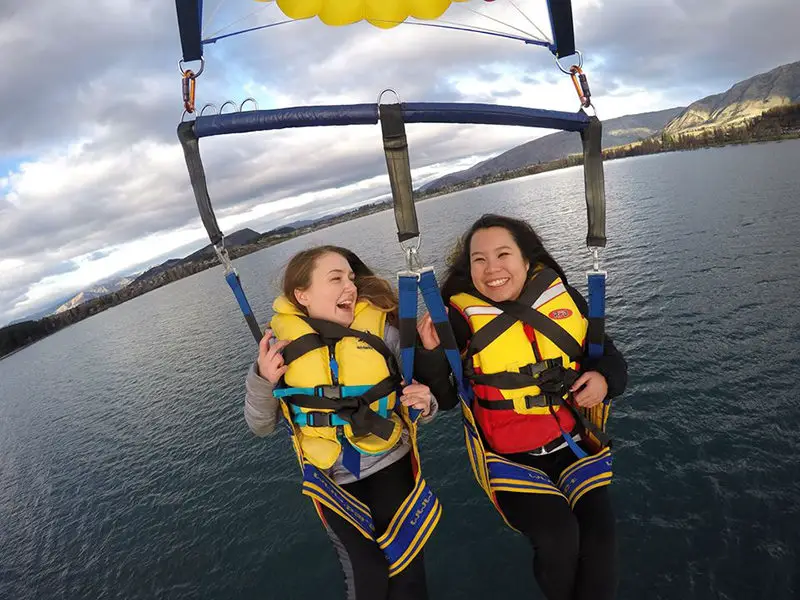
Determination and courage: the key ingredients for travelling with a disability
After thinking she might never travel outside of her home country of America, wheelchair user Shannon tells us about her extraordinary travels around the world. Read on to find out what she has learned, as well as her top tips to help you take the break of a lifetime.
If you had told me five years ago that I was going to travel to 12 countries by the time I was 22, including studying abroad, I wouldn’t have believed you. When I was younger, I was always hearing about how my friends were going to Europe over the summer with their families. While my family did travel around the United States quite a bit, a trip abroad was never in the picture.
So, when I was 17 and about to graduate from high school, I decided to try to go it alone. First thing was first, I needed to do my research to find out what options were open to me as a wheelchair user. After months of preparation I embarked on my first trip – a three week journey to Costa Rica through a volunteer organisation.
In Costa Rica I faced some of my most trying times to date. I was abroad for the first time in a developing country, where accessibility is minimal, and I had to rely on the support of strangers to be able to do almost anything. But I came home with a new found confidence and a desire to see the world. That first trip made me realise that while traveling with a disability is by no means easy, it is entirely possible, as long as you have a good dose of determination and courage.
I could probably write a book about what I’ve learned from my travels in a wheelchair (and maybe I will some day!). But for now, here are my top tips that I hope will help my fellow disabled travelers.
Plan ahead
The number one travel tip for people with, and without a disability, is to prepare. When I studied abroad in Australia, I started researching universities almost a year in advance. Having to worry about accessibility means there are a lot of things to consider.
There is a lot of planning that goes into accessible housing, transportation and activities. While there are some limitations that come with traveling with a disability, planning ahead can minimise any frustrations, so that you don’t have to worry about figuring things out when you are just arriving to the country with limited phone access or a language barrier.
Friendship
I have traveled to almost every continent, but this would not have been possible without the help of good travel companions. I’m lucky to have met amazing friends that don’t mind going the extra mile to look for accessible hostels, to help push me up hills or over rough terrain, and to help take apart my wheelchair when we travel by taxi.
While I’m not saying it is impossible to travel alone with a disability, it is just very helpful to have someone there to help in case unexpected barriers arise along the way.
Confidence is key
Travelling has taught me to be an advocate for myself, to fight my own corner to ensure all my needs are met. When I studied abroad in Australia, I had to work with the university to find an accessible college to live in. I also had to find a facility that would help me exercise weekly, plus get to grips with living in another country for four months.
You need to be bold and look out for yourself, to ask questions and make decisions to ensure your needs are met.
As an example, I took a trip to New Zealand with a friend I met in Australia, where we went horseback riding and parasailing. Both went smoothly, but only because I had made checks and had been clear about what I needed.
Even after all my research and checks, just before the day I called the companies again and made sure that they were expecting us and were able to accommodate my needs. Most people and organisations will be eager to help in any way they can.
My travels have taught me to be confident in myself and stand up for what I need in order to have the best experience as possible.
Keep an open mind
 When travelling, especially with a disability, things don’t always go to plan. But sometimes the best memories come from the unexpected.
When travelling, especially with a disability, things don’t always go to plan. But sometimes the best memories come from the unexpected.
In the US where I live, the Americans with Disabilities Act helps to make sure that buildings and transportation meet accessibility standards. But in many other countries, there aren’t always the same protective laws. It’s therefore is important to keep in mind that not everything will work out perfectly or be how you are used to it.
Through my experiences, I’ve found that people are often eager to help, as long as you ask. Communicate what you need and you’ll probably be able to find someone to give you a hand. It might even result in a new friendship!
People with disabilities deserve the opportunity to travel and see the world just like anyone else. I am fortunate that I’ve been able to explore so many countries, and I don’t plan on stopping anytime soon.
People with all kinds of disabilities need to continue to face the unknown and travel despite the hardships. We’ve got to show society that it is important for countries to continue improve physical infrastructures and work towards acceptance for all.
By Shannon Kelly
Check out…
- Disability and employment: my story of success
- Disability and travel: accessible Scotland
- Be inspired by two wheelchair dance champions
Get in touch by messaging us on Facebook, tweeting us @DHorizons, emailing us at editor@disabilityhorizons.com or leaving your comments below.
